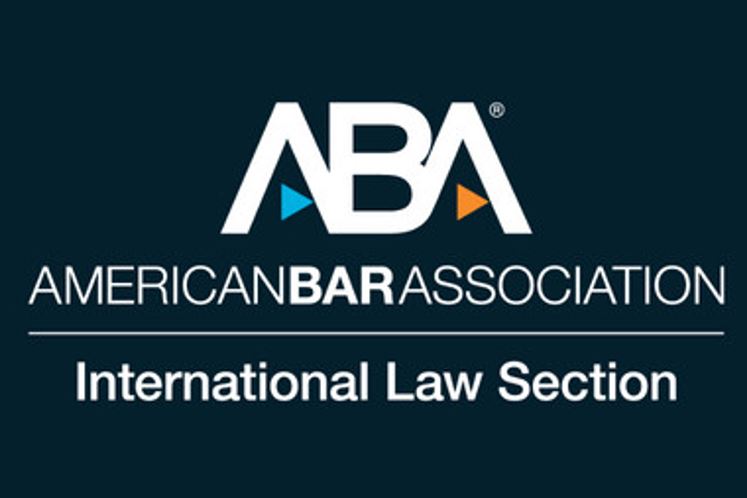I. Can allegations of corruption serve as a bar to jurisdiction of arbitral tribunals or admissibility of claims?
First, corruption allegations would not prevent an arbitral tribunal from hearing the dispute at all, since the doctrine of Kompetenz-Kompetenz is enshrined in Romanian law. Thus, arbitral tribunals can/would analyse the arbitrability of such a claim.
Romanian legislation encapsulates the principle of separability of the arbitral convention, by providing at art. 550 (2) Code of Civil Procedure that the validity of the arbitral convention is separate from the validity of the contract. This leads to two scenarios.
In the first scenario, if the validity of the contract itself were called into question, a claim based on such a contract would still be arbitrable. In this scenario, the arbitral tribunal will in theory be able to analyse the corruption allegations and rule on whether the claim is founded, or the contract is valid or, on the contrary, null and void due to it being concluded on illicit cause.
In the second scenario, corruption allegations concern the arbitration clause itself. In this case, it must be noted that under the rules of the Code of Civil Procedure courts will retain their competence and, conversely, arbitral tribunals have no jurisdiction, over claims where the arbitration clause is null and void.
Thus, if an arbitration clause was concluded in consideration of corruption activities or money-laundering, which constitute illicit cause), the clause could be rendered null and void, which would in turn render the dispute on the merits inarbitrable. In this case, an arbitral tribunal would rule, based on Kompetenz-Kompetenz, on the arbitrability of the dispute.
In another scenario, during criminal investigations the arbitral clause as instrumentum is invalidated, a procedure provided for by Romanian criminal law in the case of documents that are the result of criminal activity. For example, the arbitral clause which was forged as a result of acts of corruption may be disregarded in this way. The result is that an interested party could invoke before the arbitral tribunal that no evidence of an arbitral clause may be made (since the instrumentum was invalidated), which in turn would render the arbitral tribunal non-competent to solve the dispute.
However, we note that cases where parties will sign an arbitration clause in order to launder money via pro-causa constituted arbitration institutions is no longer a viable option, given that after the Supreme Court Decision no. 10/2024 only non-profit organisations specifically authorised by law to organise institutional arbitration may organise/set up arbitration courts. Said Decision eliminated the quasi-totality of national arbitration courts.
II. Can allegations of corruption affect the validity of an arbitral award?
The validity of an arbitral award may be challenged in Romania via annulment proceedings; inter alia, a reason for annulling an arbitral award, as prescribed by art. V New York Convention and art. 608 Code of Civil Procedure, is the breach of public policy or ordre public.
Similar to its meaning under the New York Convention, it is generally recognized in Romania that corruption is included in the sphere of public policy breaches. Thus, an award obtained through illicit means, either by bribe or by trafficking in influence, is invalid and may be annulled.
III. In annulment or enforcement proceedings, can the court review the award and the merits to determine whether corruption or related offences affect the underlying dispute?
There are three scenarios in which courts may review aspects concerning the award (but not the merits of the case): (i) annulment proceedings, (ii) exequatur proceedings (if the arbitral award is rendered in a seat outside Romania) and (iii) opposition to enforcement proceedings. In all cases, courts may analyse the incidence of public policy concerns which may lead to the invalidity of arbitral awards. At the enforcement phase, only arguments which could not be brought in previous stages (arbitration itself and exequatur proceedings if any) may be invoked.
In practice, in order to obtain the annulment of an arbitral award obtained through corruption, a criminal case would be opened as well and annulment proceedings would be stayed until a final decision is rendered in the criminal case. In order to prevent the arbitral award from being enforced, it can be suspended in the annulment proceedings pending the court decision, if security is posted.
IV. Can courts review corruption allegations which have not been raised in the arbitration?
If corruption allegations concern the arbitration clause itself, the answer is no; according to art. 608 (2) in conjunction with art. with 592 (1) and (3) Code of Civil Procedure, reasons concerning the existence and validity of the arbitration clause, the constitution of the arbitral tribunal, the powers of the arbitrators and the irregularity of procedural aspects and acts throughout the arbitration may not be invoked in annulment proceedings, unless they were previously invoked during the arbitration itself.
However, if corruption allegations concern the arbitral tribunal itself, e.g. bribery, in order to obtain a certain decision from the tribunal, then such allegations may be invoked in annulment proceedings.
On top of the above-mentioned limitation, an additional limitation exists during annulment proceedings. As such, if the corruption allegations were not raised before the first court in annulment proceedings, they may not be raised directly in the challenge against the first court decision.
V. Do courts defer to the arbitral tribunal’s finding that no corruption acts were committed?
The Supreme Court (Decision no. 1453/2020 of 23 July 2020) recently underlined that in annulment proceedings courts review the legality of the arbitral award without re-evaluating and interpreting the evidence submitted.
However, issues of public policy are reviewed separately from the findings of the arbitral tribunal and courts have a broad scope of appreciation of what constitutes a breach of public policy. Also, when analysing if the arbitral award was rendered in breach of imperative provisions, courts have discretion in analysing whether such provisions were breached. A fortiori, courts have discretion in analysing corruption acts that may influence the validity of the arbitral award.
VI. Is there a standard of proof used by arbitrators and reviewing courts to assess the existence of corruption?
During both arbitral proceedings and annulment proceedings, the general rule of actor incumbit probatio will apply, meaning that the party invoking alleged corruption acts is bound to prove them. No special rules exist as to the standard applied by arbitrators/courts in determining whether such corruption acts occurred. Thus, arbitration tribunals and courts will apply the common standard, i.e. of useful, pertinent and conclusive proof, which may lead the judge/arbitrator to a solution in the case.
In practice, the “clear and convincing” standard of proof has been invoked in the landmark EDF v. Romania case (ICSID Case no. ARB/05/13, EDF Services Limited v. Romania, settled through Award of 8 October 2009), though it must be pointed that in this case corruption allegations were very severe (even involving the Romanian Prime-Minister).
VII. Which method do arbitrators and reviewing courts employ to establish evidence of corruption?
Arbitral tribunals may use their legal empowerment under art. 586 (2) Code of Civil Procedure to request written explanations from the parties and to decide on the use of any evidence provided for by the law. Such evidence may consist of witness statements (including oral statements), using the opinion of expert witnesses, interrogations, or addresses to relevant authorities (such as the investigation authorities handling the corruption case). Fundamental procedural principles such as the duty to find the truth apply to arbitrators as well as judges.
Proactively seeking to gather evidence on alleged corruption acts, even when parties may be against such an investigation, may later be used as a reason to annul the award – one of the reasons for annulment is the case where the tribunal renders a decision plus petita. However, not investigating a possible corruption act affecting the arbitration itself may render the award invalid under public policy rules. Arbitrators will have to weigh the two potential invalidity reasons and decide whether administering evidence even against the wishes of the parties is warranted in the case – such is the case where there is an objective concern of corruption acts.
Similarly, annulment courts may employ the same general procedural law instruments in order to gather evidence.
There is no unitary practice regarding specialised methods of establishing evidence of corruption. However, a very important guide for arbitrators and annulment courts is given by the Basel Institute on Governance’s Toolkit for Arbitration, which establishes a “red-flag” system of inferences which can be made from certain factual situations.
Courts typically take into consideration hard evidence pointing towards corruption acts and not simple suspicions. However, as discussed above, the standard of proof applicable will still be the more lenient private-law standard employed by the Code of Civil Procedure.
Nevertheless, standards for admissibility of evidence are to be kept high, due to the sensitive and criminal nature of corruption allegations. In the EDF v. Romania case, the arbitral tribunal struck down a request to produce an audio recording because the Claimant failed to provide the full recording in its original form, thus leaving room for an allegation of evidence tampering.
VIII. Are arbitrators seated in your jurisdiction bound by criminal proceedings on issues that could impact the underlying arbitration dispute?
Until a (final) criminal court decision is rendered and res judicata may be invoked, arbitral tribunals will not be held by criminal proceedings on issues which can impact the underlying dispute. However, an arbitral tribunal has the option to suspend proceedings pending a final decision in the criminal case, if the matter deferred to the criminal court has a decisive influence on the arbitration. We note that in such cases the parties in the arbitration may file a separate annulment request against the decision of the tribunal to suspend proceedings.
IX. To what extent do they rely on or defer to findings from parallel criminal investigations?
Arbitral tribunals and courts in annulment proceedings have a limited capability of producing evidence of corruption activities by themselves. However, they may defer questions and request evidence from the criminal court (if the arbitral/annulment proceedings have not been stayed pending the criminal case) in order to obtain necessary evidence.
Thus, the Romanian legal framework gives arbitral tribunals and civil courts the possibility of relying on the criminal investigations; there are no other viable alternatives to obtain separate evidence, given that criminal investigations take precedence over any civil law proceedings.
X. Are remedies available when an arbitral tribunal rules that there is no evidence of corruption but subsequently a criminal ruling decides otherwise?
In such a scenario, the award generally may not be overturned, because annulment proceedings are time-barred past a 30-day term after the communication of the arbitral award. Other means of recourse, including extraordinary means of appeal, are not compatible with arbitration proceedings. However, an exception to the rule exists which may allow claimants to file successful annulment proceedings in these cases.
More exactly, the result of the criminal ruling would be that the arbitral award appears as invalid due to breach of public policy. However, because the 30-day period for filing an annulment claim begins as of the moment the arbitral award is communicated to the party, the invalidity of the award may no longer be challenged after that point, when the criminal court decision would be rendered.
However, the party challenging the award may be granted the benefit of the 30-day period, according to the provisions of art. 186 Code of Civil Procedure, if it can prove that the delay in challenging the award is due to justified reasons – in this case, the absence up to that point of a decision rendered by criminal courts. Courts in annulment proceedings may therefore avoid time-barring legitimate annulment claims simply because criminal courts were slower than the arbitral tribunal in rendering a decision.



